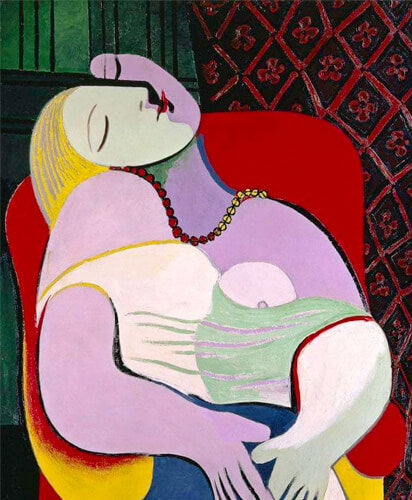Listening to your dreams
By Anthea Anka
It has always been said that sleep is the great elixir of life – it’s deeply restorative, vital to our overall physical and mental health, and has even been said to remove toxins from the brain that have built up during the day. Not to mention, during our REM sleep cycle, when our brain is most active, our dreams come powerfully out to play. As MINDful May comes to a close, we wanted to explore the power of Dreams and their importance as a reflective look into our subconscious mind. In essence, all the things our dreams might be telling us about how we are processing our emotions, anxieties or desires.
In a given night, a person cycles between non-REM sleep and REM – the cycle in which dreams usually occur and are the most vivid. It is suggested that we can dream for up to two hours a night when one’s brain activity is at its peak. Of course why we dream has continued to be a cause for great debate. Some posit that it is simply brainstem activation during our REM cycle that stimulates our limbic system. Whereas, Sigmund Freud theorised that dreams are our “fulfilment of wishes” allowing us a bird’s eye view into our unconscious, specifically our thoughts and desires that we may not want to show to the world. Other researchers suggest dreams are what we’ve carried over from our conscious waking hours in the form of images, thoughts or memories, and how the worries in our life are manifesting themselves. In short, a way our subconscious communicates with us – and more importantly, that we should listen to what it might be telling us.
In the world of dreams, oneirology is the scientific study of dreams. In this field, scientists carry out research into the process of dreams, which includes the mechanism of dreaming, what influences our dreams, and any disorders that can be linked to dreaming. This field often overlaps with neurology where researchers study a person’s brainwaves as they dream or the effects of certain drugs during the dream state. Knowledge that is amassed in this area has helped scientists treat certain mental illnesses and study dreams in connection with brain activity.
There are also those who study dream interpretation and how it reflects on our emotional state. In the field of psychology, dream interpretation varies greatly, but one constant belief is that dreaming is incredibly unique to the dreamer, and any symbol or meaning of the dream has to be looked at within the context of the dreamer’s life. Dreams also serve as a natural de-stressing mechanism by lowering a brain chemical (norepinephrine) associated with stress. Harvard Psychologist Deirdre Barrett theorises that dreams also help us solve puzzles that have bothered us during our waking hours. Barrett explains, “While dreams may have originally evolved for another purpose, they have likely been refined over time for multiple tasks, including helping the brain reboot and helping us solve problems.”
With MINDfulness always being our intention, have a think about what may be surfacing for you when you close your eyes at night. Be it, an archetypal dream that reoccurs, a persistent nightmare that speaks to past trauma or challenges, or a symbol that speaks to you in a personal way. Dreams can allow us to examine the parallels between our dreaming and waking states, serving as an indicator of something that perhaps needs exploration and mindfulness – and with mindfulness comes balance, and balance in our waking life is always a beautiful thing.
Image: Jessica Warboys, Sea Painting 2016




